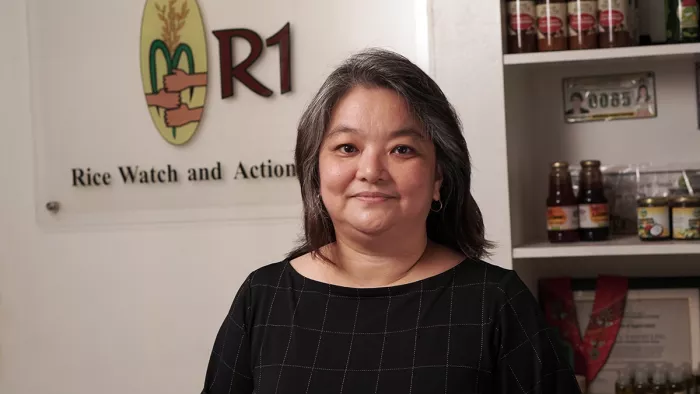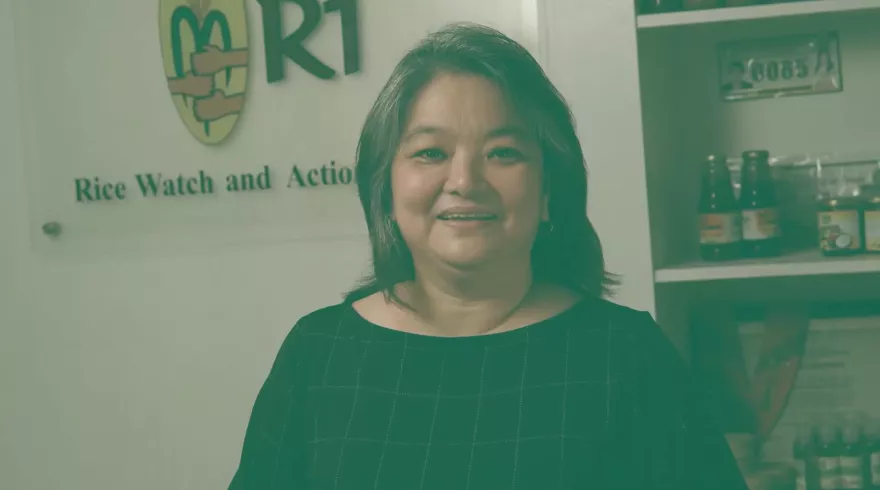
Change maker: Lasting systemic change
Hazel Tanchuling, Rice Watch Action Network / Philippines (Manila)
I am Hazel Tanchuling, the Executive Director of Rice Watch Action Network, which is a national organisation based in the Philippines. We have been selected as a Start Network Change Maker in the category of Lasting Systemic Change.
Let me start off with a little history on Rice Watch Action Network. We were formed back in the early 2000s as an advocacy network on a very specific topic—we opposed the rise liberalisation. We were a very small organisation and we later became very strategic in our concerns, pushing for a sustainable farming in the Philippines.
From there, we started our “Climate Resiliency Field School Work” in the localisation of climate services in 2009. At that time, there was very little early warning for agriculture, most of the early warning systems were generic (like on the topic of cyclones, floods). There was really no way to warn farmers in order to reduce damaging losses in the agricultural sector. So that’s a short history of our work.
The Philippines is always in the top 5 in terms of the risk index, and if you look at the damages and losses of climate-related events (e.g. cyclones, droughts) you will see that the biggest impact falls heavily on livelihoods, particularly on agriculture and fishing. We wanted to do something about it to help farmers achieve resilience so we focused on reducing losses and damages in the sector.
In the Philippines, we get 20 to 22 tropical cyclones a year. Not to mention the other climate-related events such as EL Nino and drought. When we started, we were not really into responding to disasters immediately, we were an advocacy organisation. But with "Super Typhoon Haiyan" back in 2013, our partners requested that we help in the recovery assistance in the affected areas. So that was our first experience in responding to climate-related disasters.
At that time, we had very little knowledge on how to do it because we were more into development work. Fortunately our partners capacitated us in the process as well. We also responded to an earthquake in one of the major islands in the Philippines in Bohol, after which we developed a core competency, courtesy of our key development partner in this area. So, thank you to the international partners that we’ve had for a long time, especially Christian Aid.
We also do budget advocacy at the local and national levels, such as assisting local governments in climate change action planning. This is so that communities can adopt the agricultural interventions that we advocate for while being supported by the local government. That's how we want to drive lasting change.
We are happy and humbled by this award. It’s a great recognition, but scary at the same time because it connotes that we have already achieved success. While we have formed relationships in behaviour change already, it adds a lot of pressure but also gives us a reason to work harder. Thank you to everyone who has been part of this journey with us.
This article is based on an interview conducted by A Good Day in Africa. Listen to the full interview below.

